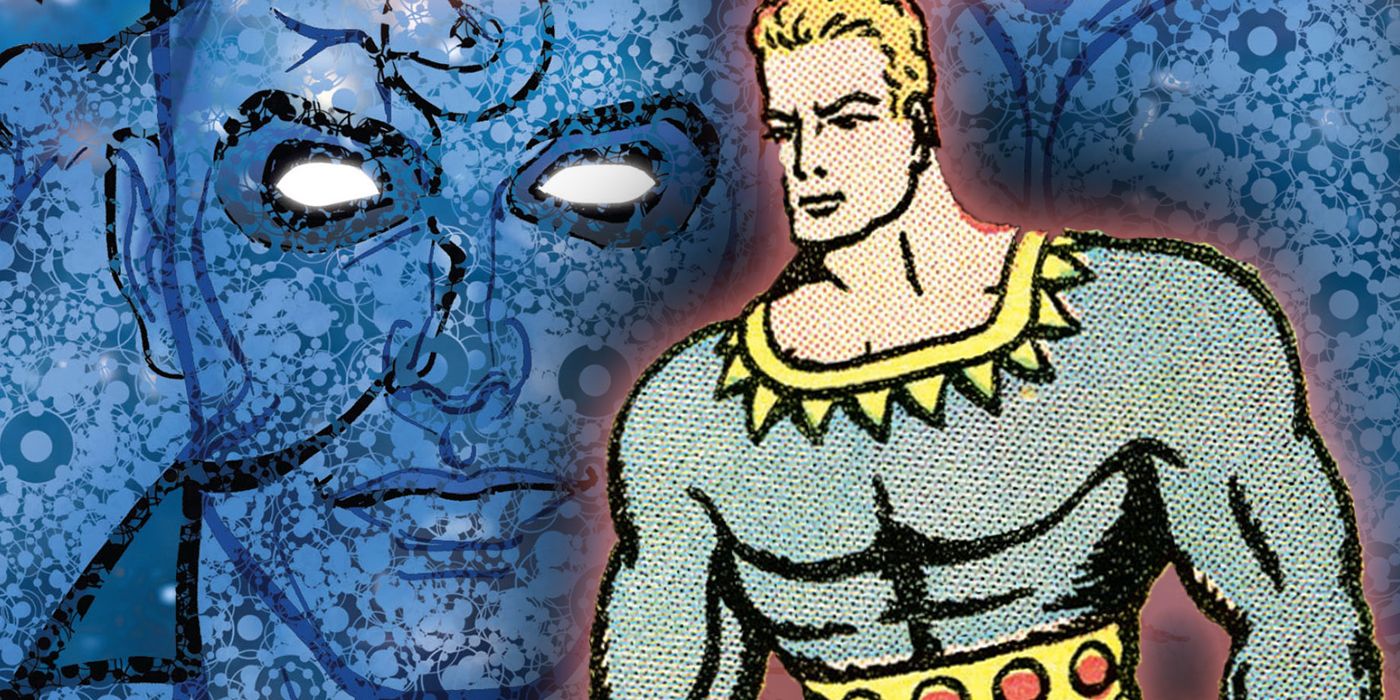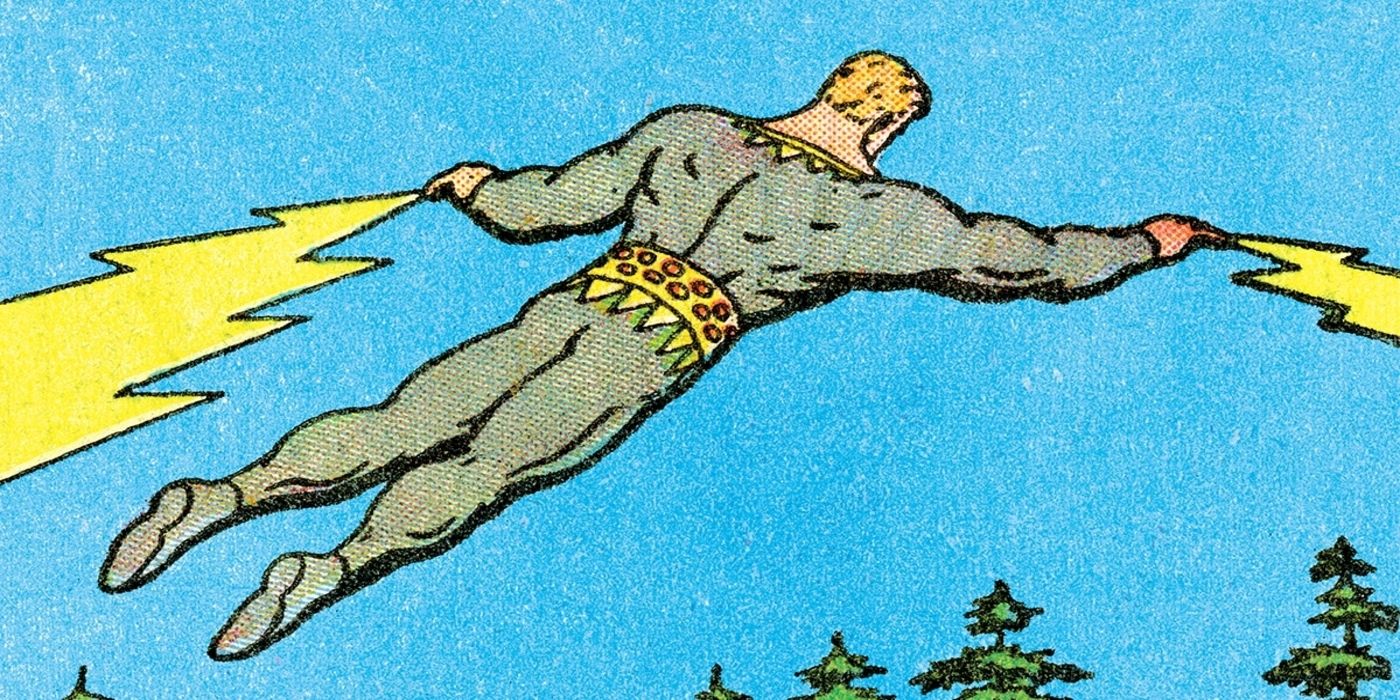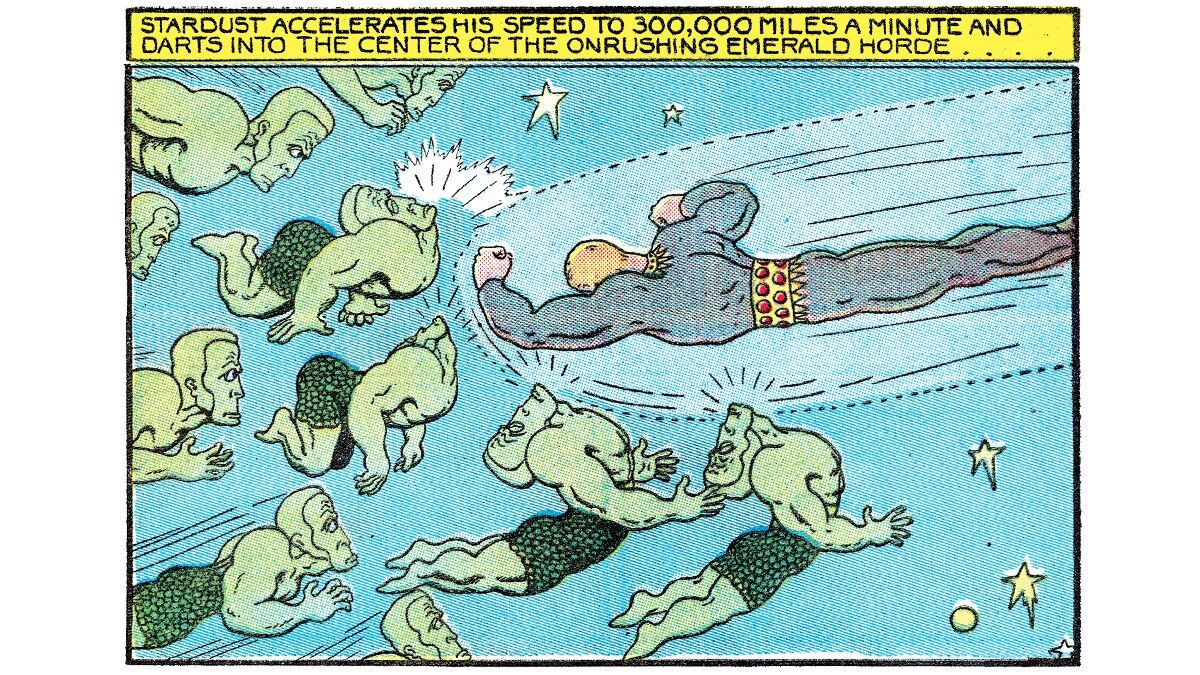Superhero comics are filled with incredibly powerful entities, from more earthbound heroes such as Superman and the Hulk to more cosmic ones such as Silver Surfer and Doctor Manhattan. Though they're the most well-known, these aren't the only powerhouses within comic books. The Golden Age of Comics was filled with numerous Superman-like characters, all of whom were made to be more and more powerful in an attempt to capitalize on the success of DC's star hero.
One of these characters was Stardust the Super Wizard. Created by Fletcher Hanks for the company Fox Feature Syndicate, this intergalactic specimen was filled to the brim with whatever powers the plot called for. Merciless and utterly morally ambiguous, Stardust the Space Wizard unwittingly questioned the moral concept of a superhero long before Doctor Manhattan ever did.
Stardust first appeared in the inaugural issue of Fantastic Comics in December of 1939, going on to appear in 16 subsequent stories for Fox Feature Syndicate. Appearing over a year after Superman's comic book debut, Stardust is in many ways a sort of dark logical fruition of the Golden Age version of that character. The Golden Age Superman would routinely deal with arguably mundane issues such as labor disputes and corrupt landlords, using his powers to essentially strongarm them into doing the right thing. Stardust's adventures entailed the same setup, but with a character on an even grander scale.
Stardust acts as a sort of narrator/Greek chorus for many of these stories, using his vast abilities to look into the various evil happenings throughout the galaxy. Many of these would involve rather street-level crooks who Stardust should logically have no problem with. Stardust would bemoan their evil acts, but at the same time do nothing to stop them until after they had begun. This would usually result in untold amounts of unnecessary loss of human life and property. Finally, Stardust would intervene, offing his opponents through increasingly bizarre and oftentimes violent means. He would promptly leave, with the citizens of Earth sad not that he had waited so long to act, but that they were unable to help this seeming hero from on high.
Stardust's powers were vast, prophesying the numerous plot contrivance, deus ex machina abilities that the Silver Age version of Superman would have. His strength is at least on par with the Golden Age Superman, easily throwing grown men and heavy objects with ease. He equally has incredible speed and reflexes, being able to deliver a precise uppercut while traveling at 18 million miles per hour. Extreme heat, cold, water, and the vacuum of space mean nothing to him, as he can not only survive, but thrive in them all. Likewise, he never tires or seems to take any physical damage, making him outright unstoppable.
This is all in addition to his indestructible leotard and radiation belt, which grant further powers. The belt can absorb objects, control metal, grant invisibility, alter weather patterns, and even disrupt the gravitation pull of entire planets. Stardust is also apparently a master hand-to-hand combatant, as well as an ace detective. Besides his vast powers, he was frequently drawn as being anywhere between seven and almost 10-feet tall. His status as a "Super Wizard" does not denote that his powers are magical, either, leaving the origin of these abilities completely mysterious.
In recent years, many have looked back at the ridiculousness of Stardust's adventures, pointing out his complete lack of regard for anyone else. His methods included shrinking down strongmen into literal dwarves, grabbing opponents to the point where their clamped arms are deformed, and shooting men through the chest with lightning bolts. Given his more traditional superheroic appearances, Stardust is in many ways an even better deconstruction of superheroes than Doctor Manhattan.
He ironically also looks very much like Marvelman/Miracleman, who had a similar god-like disregard for the happenings of mortals. As a public domain character, any creator can publish their take on the indestructible, remorseless god, allowing readers anywhere to be caught in the power of Stardust.



